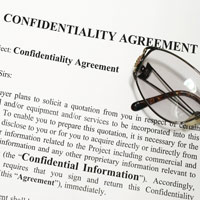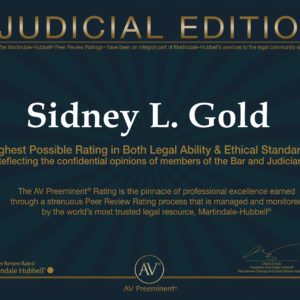How Should My Business Handle Trade Secret Issues?

Trade secret issues occur when businesses try to protect themselves and their intellectual property. Trade secrets can become a problem if those secrets appear to belong to an employee or if they have been misappropriated by a third party. The business must be prepared to protect itself in court or understand how to keep these trade secrets from the public.
If a business is innovating, working on engineering projects, or inventing new products or services, the company needs to know how to manage those secrets. Several employees could be involved in each project, and that is why the business must review its policies and procedures for handling intellectual property or secrets that are vital to the success of the business.
What are Trade Secrets?
Trade secrets include any form of intellectual property a business has generated. These secrets are typically used by the company to create products or services. At the same time, these ideas are known by several people within the company. For example, an engineering company that creates a new engine for a client likely owns the patent or trademarks on that engine. Employees within the company may be aware of how the engine was designed, but the company often owns those patents because its resources were used to create the product.
Because the business has a signed contract with each employee, that contract often explains how trade secrets or intellectual property will be managed. If the company has not explained trade secrets in a signed contract, employees might claim that they own them.
How Do Trade Secrets Benefit My Business?

Trade secrets benefit a business by providing the company with information that helps it compete in the marketplace. Businesses, however, must possess trade secrets that are unique to the company. For example, a trade secret may be the manner in which an automotive manufacturer builds its fuel injection systems. The fuel injection system makes the car more powerful and more efficient. If another company makes an even better fuel injection system, it likely wants to keep the design a secret.
Trade secrets also benefit the business when companies want to license those ideas. One of the most popular trade secrets is the design of the three-point seat belt. Volvo invented and took ownership of the three-point seat belt, even though several people worked on the project.
While that trade secret could have made Volvo billions of dollars, it chose to release the patent and license the three-point seat belt for free. At the same time, a business in today’s world may not feel that it can survive if it does not hold onto a patent and profit from licensing fees. Businesses without trade secrets do not have an edge over the competition, and the company loses that edge if it does not retain the rights of those trade secrets.
How Do I Define a Trade Secret?
A business must define a trade secret so that it understands what it must protect. For example, a business that puts two pickles on a sandwich is not protecting a secret recipe. Everyone can see that there are two pickles on every sandwich, but the business must protect certain things that help drive the company economically. Examples of trade secrets include:
- A chemical formula
- A pattern for a garment
- A blueprint for a design
- A proprietary device
- A custom software programs
- A method or process that is not shared publicly
Because companies try to protect their secrets, they need to know when to be diligent in their secrecy. A business should protect all methods and processes that it uses to create its products. If it is unclear which trade secrets should be protected, reach out to a Philadelphia employment lawyer for assistance.
Who Holds These Trade Secrets?
Ultimately, the business will hold patents or possess trade secrets. The business also spends money improving these trade secrets as the market progresses. For example, an auto manufacturer might upgrade its fuel injection system. While the old design is important, the new design must be kept a secret. The business cannot throw out these secrets, and it cannot allow employees to leave the company with the old designs. A copycat business could grow out of a single leftover idea, and that is why trade secrets must be protected as much as possible.
Some employees may believe that they have stake in the trade secrets that they helped create. The business should always refer to its employment contracts when litigating these issues. No matter what the employee thinks or how much they contributed, the employment contract explains their rights. If a business wants to offer a stake in these secrets to an employee, the employee’s contract must plainly state how that situation will be managed.
Are Patents and Trade Secrets Different?
Trade secrets can be turned into patents, but they are two different things. When a company wants to protect trade secrets, it has chosen not to patent these processes. Trade secrets can remain secret and never require public disclosure. At the same time, a patent requires the company to apply for protection and publicly disclose how that design was created. A patent gives the company a monopoly on the design, but trade secret protection through contracts and non-disclosure agreements continues permanently until the secret is revealed to the public.
Can I Prevent Employees from Sharing Trade Secrets?

A business will likely do everything it can to prevent employees from sharing trade secrets in the future. If the business does not have a confidentiality agreement with its employees, that information could be shared without any legal recourse. The company must write each contract to explain how it will retain the rights to intellectual property, or the business might need to use non-compete agreements to prevent employees from leaving for direct competitors.
Adding one or all of these documents to an employee contract is a simple way to prevent the transmission of trade secrets. The company can go so far as enacting policies that allow only for secure communication. Additionally, the business may not allow anyone outside of a few select executives to even speak of these trade secrets.
Overall, businesses need to decide what is most important to them. When a business believes that its trade secrets need to be protected, it must choose the most appropriate methods. While some companies will resort to deep secrecy and stringent contracts, other businesses may simply ask every employee to sign a confidentiality agreement or non-compete agreement, depending on the situation.
What Constitutes Misappropriation of Trade Secrets?
A trade secret can be misappropriated when it is transmitted, shared over a non-secure channel, or sold to another business. An employee who left the company might offer to share those secrets with a competing business, or another company might have stolen these trade secrets. The business carries the burden of proof when it claims that trade secrets have been misappropriated. The business must show that:
The misappropriated information constitutes a trade secret that is unique to the company. This burden of proof is important for businesses because they must show that they have information worthy of being a trade secret. A business cannot claim a trade secret if everyone knows about it. The company must take reasonable steps to protect that information, then the information must have been appropriated by someone else.
The company has made reasonable efforts to protect that information. A company that does not protect its information cannot file suit to recover that information. An employee contract can contain a confidentiality agreement, non-compete agreement, and even a stipulation that all trademarks or patents earned will belong to the company. If the company has not taken these steps, it cannot claim that it valued the information enough to recover.
The information has been misappropriated by someone outside the company. These trade secrets must have been obviously appropriated by someone else. A former employee might have sent emails to a new employer explaining how these trade secrets work or another company might have already started work on a stolen design or announced that a copycat product is available for sale.
What are the Penalties for Revealing Trade Secrets?
There is no government authority that monitors or manages trade secrets. The company is required to police its employees via contracts and confidentiality, non-disclosure agreements, or non-compete agreements. The company should speak to an employment lawyer when it needs help generating these documents.
If the trade secrets seem to have been intentionally stolen, the Economic Espionage Act of 1996 applies. This is yet another reason for the company to speak to an employment lawyer who can review confidentiality agreements and contracts to learn if the case should be handed over to the authorities or litigated in civil court. Businesses cannot make this decision on their own.
When Should I Hire a Lawyer?
A business owner or manager must hire a lawyer when it is clear that trade secrets have been lost, shared, or stolen. Do not try to resolve the matter internally. The case could become quite complex, and an employment lawyer should review the case. A lawyer can test the case against existing precedent, and the attorney will investigate the case on behalf of the business.
A lawyer can start with something simple like a cease and desist letter, or they can file suit. Additionally, a lawyer is needed when employment contracts are written. The business must have a lawyer write up a confidentiality agreement, a trademark or patent transfer agreement, and a non-compete agreement to protect itself.
Companies that try to write these documents on their own will have a difficult time defending them in court. It also helps if the same lawyer who wrote these documents defends them in court. A lawyer will guide the company through the legal process, including appeals when necessary.
Philadelphia Employment Lawyers at Sidney L. Gold & Associates, P.C. Assist Businesses with Trade Secret Issues
If you have questions or concerns regarding the trade secrets of your business, contact the Philadelphia employment lawyers at Sidney L. Gold & Associates, P.C. for assistance. Call us today at 215-569-1999 or contact us online for a free consultation. Located in Philadelphia and Pennsauken, New Jersey, we assist clients throughout Wilkes-Barre, Scranton, northeast Philadelphia, Bucks County, Chester County, Delaware County, Montgomery County, and South Jersey.































